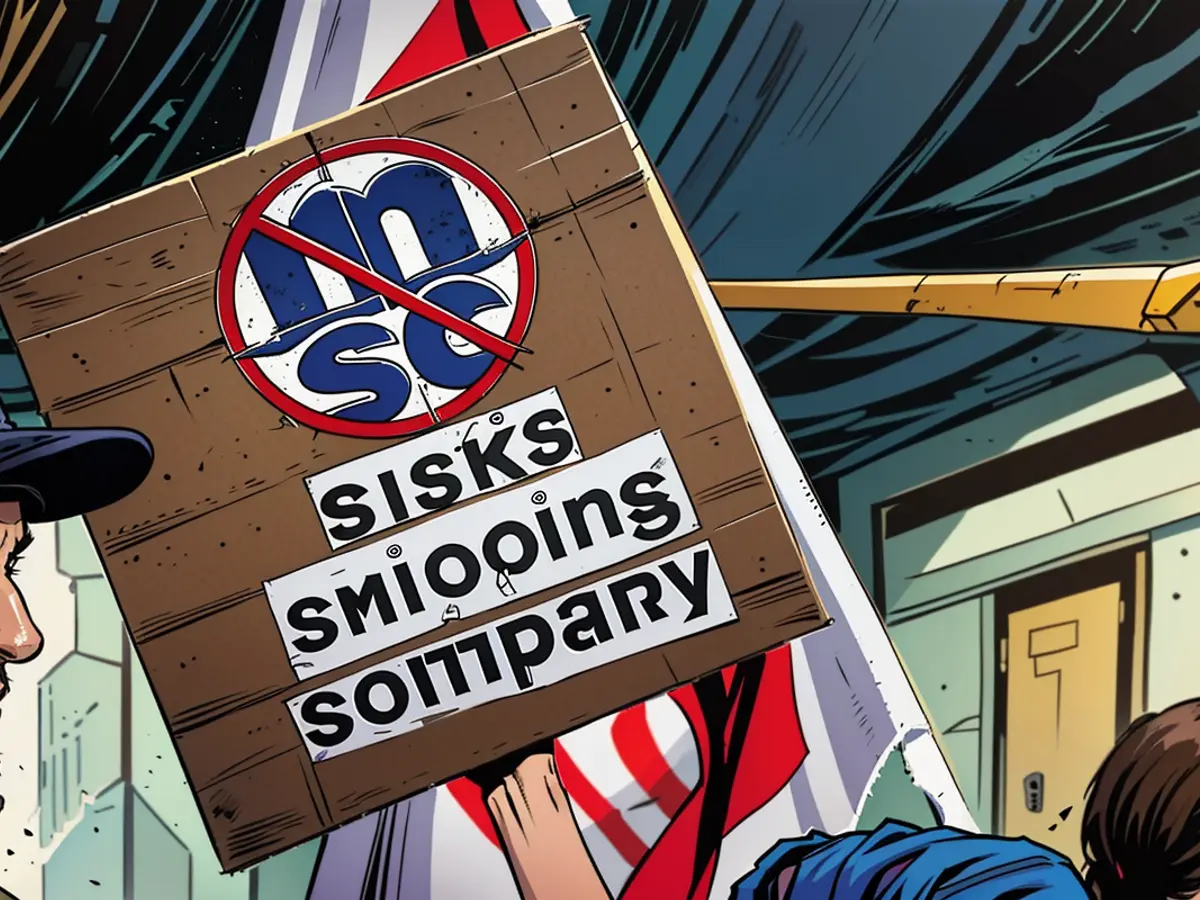What does the controversial entry of MSC mean for Hamburg's port?
The world's largest shipping company, MSC, is set to enter Hamburg Port Logistics (HHLA) and acquire significant shares in the company. The Hamburg Senate is scheduled to approve the deal as the final instance on Wednesday. However, the deal is controversial.
The Hamburg Senate is preparing to approve the controversial deal between MSC and HHLA as the final instance on Wednesday. If the red-green coalition gives the green light, a contract lasting at least 40 years can take effect. The opposition intends to postpone the final decision until after the summer break by refusing the second reading on Wednesday. However, there is no doubt about the Hamburg Senate's approval of the at least 40-year contract given the red-green coalition's two-thirds majority. But what exactly is the deal about?
A Brief Overview: Who is HHLA?
The Hamburg Hafen und Logistik AG (HHLA) is not just any cargo handling company. The company that emerged from the Hamburg Free Port Warehouse Company, founded in 1885, is the heart of the Hamburg Port. Approximately 5.9 million standard containers (TEUs) were handled at its three container terminals - Tollerort, Altenwerder, and Burchardkai - in the past year, accounting for around 77% of Hamburg's total cargo handling. In addition, HHLA is active in terminals in the Ukrainian port of Odessa, the Italian port of Trieste, and the Estonian port of Muuga. Besides terminals, HHLA's businesses for transporting containers on the road and rail are equally important. For rail transport, HHLA has its subsidiary Metrans. An unusual aspect of HHLA's activities is its engagement in the real estate sector, including UNESCO World Heritage Site Speicherstadt.
How is HHLA doing?
The situation is challenging. As an internationally oriented company, the HHLA is often directly and harshly affected by global crises. In the past year, with a turnover of around 1.45 billion Euros, the profit was only 20 million Euros. Container handling decreased by 7.5%, and container transport by 5.4%. This confirmed a trend since the 2008 financial crisis that has been more or less persistent. In the first quarter of this year, HHLA even slipped into the red. Moreover, upheavals at major shipping companies, such as Maersk and Hapag-Lloyd, joining the "Gemini Cooperation" and preferentially calling at ports where they own or control terminals - in Germany, for instance, Bremerhaven and Wilhelmshaven - are causing concern. HHLA urgently needs money for the modernization and automation of its terminals.
What should be done?
Hamburg's red-green Senate - which held around 70% of the shares, with the rest in scattered ownership - decided on a surprising move. In September, it was suddenly announced that MSC would join HHLA and own 49.9% of the company, while the city's stake would be reduced to 50.1%.
What exactly is agreed upon?
For nearly half of the shares, Mediterranean Shipping Company (MSC) will increase its cargo volume at HHLA terminals, according to a press release from the Hamburg Senate in 2025, and will raise it to one million TEU per year by 2031. In addition, they will build a new German headquarters in the HafenCity, where the cruise division MSC Cruises will also move in; the workforce will increase by over 700 jobs in Hamburg. Furthermore, MSC and the city aim to increase HHLA's equity capital by 450 million Euro. Finance Senator Andreas Dressel stated that in the negotiations for the over 40-year contract, two points were paramount: "We must retain the majority and we must ensure co-determination." Both have been achieved. "As a city, we also still have the right of proposal for the CEO and supervisory board positions."
What happened after the announcement?
Shortly: A storm of indignation broke loose. Harbor workers and harbor workers went out on the streets several times, venting their anger in angry demonstrations. Labor representatives, the Verdi union, and even experts warned in expert hearings and a public hearing of the Hamburg Senate about a "historical mistake." Above all, MSC's business conduct is under fire. After all, MSC is not exactly known for its engagement in co-determination matters, and it even dismissed a former works council chairman in one of its subsidiaries in Hamburg.
Where did the criticism of the MSC deal ignite most?
The price. Many critics are convinced that the agreed price of 16.75 Euro per share and thus approximately 233 million Euro for the city-owned HHLA shares is far too low. So the former president of the Hafen Hamburg Association, Gunter Bonz, told the "Hamburger Abendblatt": "Congratulations to MSC. The company has played its cards right and pulled the Senate over its knee." HHLA is worth much more than that, just Metrans alone is worth two billion Euro.
The controversial deal between MSC and HHLA, if approved, could lead to a significant increase in cargo volume at HHLA terminals, with MSC aiming to handle one million TEUs annually by 2031. Despite the controversy, the deal could also result in the creation of over 700 new jobs in Hamburg, as MSC plans to establish a new German headquarters and move its cruise division to the HafenCity.
Despite the potential benefits, many critics have raised concerns about the agreed price of 16.75 Euro per share, which they believe is significantly undervalued, especially considering the worth of HHLA's subsidiary Metrans alone, estimated at two billion Euro.








